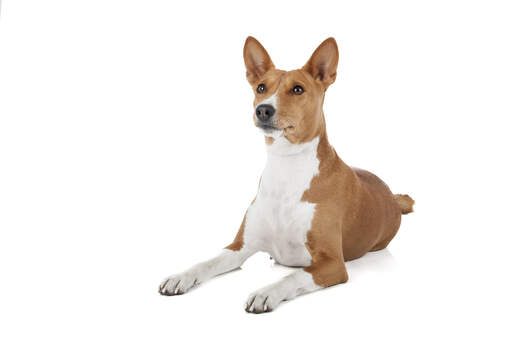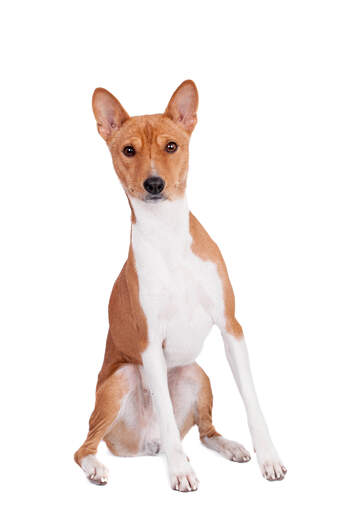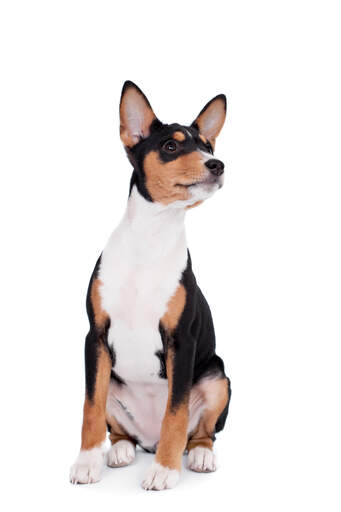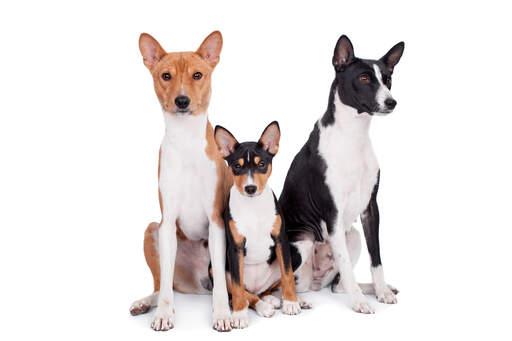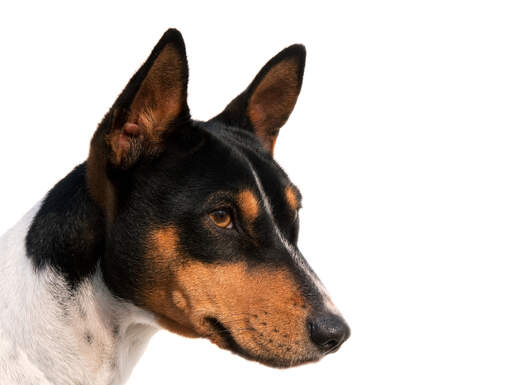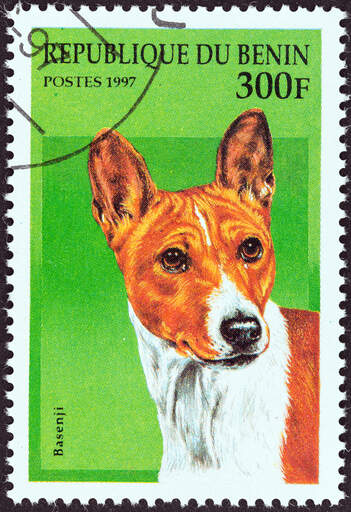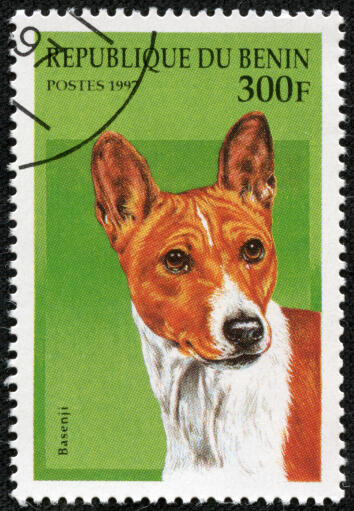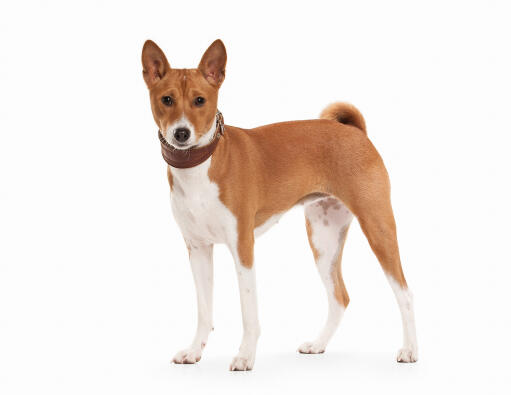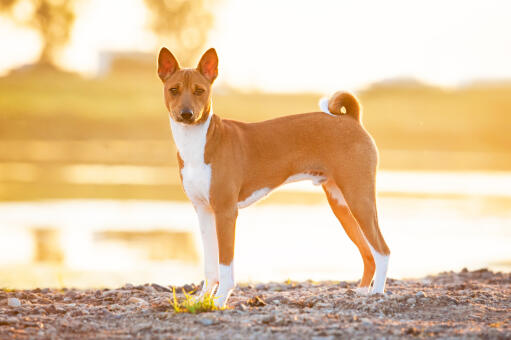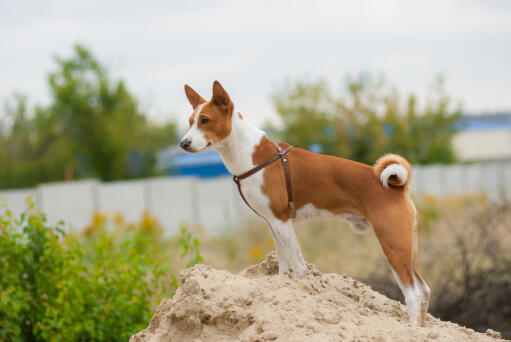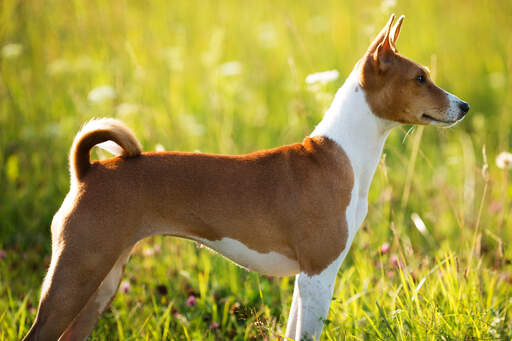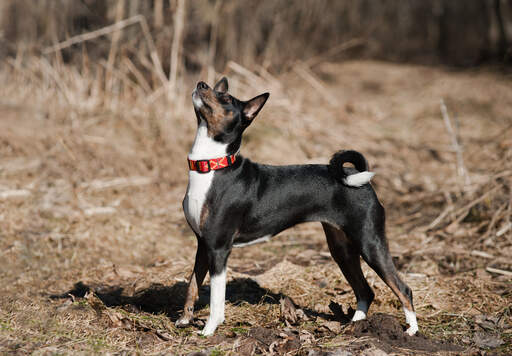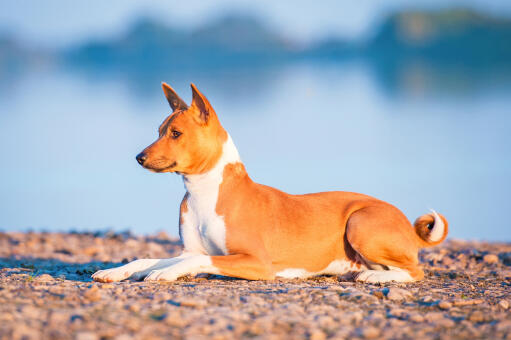Basenji (auch Kongo-Terrier)













Geschichte
The Basenji originates from the Congo region of Africa and was found living amongst Pigmy hunters, where they were used as pack hunters to herd game. In 1930 a few dogs were successfully imported to England and became the foundation of a breeding programme and by the 1950's was becoming more popular as a pet and show dog. It is unusual as it only comes into season once a year not twice and is known as a 'barkless dog'; it tends to yodel and howl rather than bark.
Verhalten
The Basenji is an alert, inquisitive dog, who can be wary of strangers. It is much more likely to bound with one owner, but are classed as a family dog.They love attention and are playful, but those with small children should take care as the Basenji can nip if they feel threatened. Their high prey drive should be watched as they will escape most back gardens and are known for their climbing ability. If they want to get out they will and are fast runners. Their recall is hopeless and it is said they are one of the hardest breeds to train. It takes a thorough and patience trainer to get this dog to do what they want. They are intelligent, but incredibly stubborn and training takes a long time. It is classed as sight hound with terrier mannerisms and it's independent mind is very evident. It is best to give the breed a job, whether that be lure coursing, agility, competitions etc, all will help keep the mind active and prevent destructive behaviour. With regard to training, they respond well to treat based reward and are very likely to growl/cower if shouted at. Basenjis are the sort of dog that dislikes being left alone and will empty the kitchen bin or rush around the house with a toilet roll to keep themselves entertained. They like to be with you at all times and are affectionate and devoted. They will often stand on their hind legs in a 'meercat' pose, so they can get higher up and see what is going on around them. They are comical and clever and will twist you around their little finger. The Basenji dislikes getting wet and is truly a fair weather dog. They often refuse to go outside when it is raining. They are fastidious with grooming and are always washing themselves. Their coat is short and requires only occasional grooming.
Health wise, they can suffer from Falconi syndrome whereby the kidneys fail to absorb nutrients; treatment is widely available if caught early on.
Charakter
Basenjis have an intelligent and inquisitive temperament. They tend to be reserved around strangers but will form strong bonds with their family being affectionate once they know someone. They are very playful and it can be difficult to keep them with cats and other dogs unless introduced from an early age.
They dislike going out in the rain and snow but need a good amount of exercise daily.
Gesundheitliche Probleme
Health problems that may be associated with Basenjis include Fanconi syndrome (a type of kidney disease), Progessive Retinal Atrophy (PRA: degeneration of retina causing blindness) and inflamattory bowel disease.
Einzelheiten zur Rasse
- Status: Common
- Lebenserwartung: 12 - 16 years
- Gewicht: 9 - 11 kg
- Höhe: 16 - 17"
- Selten: Nein
- Fell: Kurz
- Pflegeanforderungen: Einmal pro Woche
- Stadt oder Land: Beides
- Mindestanforderungen an Umgebung: Kleines Haus
- Mindestanforderungen an Garten: Kleiner bis mittelgroßer Garten
- Rassetyp: Laufhund
- Größe: Mittel
- Energieniveau: Hoch
- Benötigte Bewegung: Bis zu einer Stunde

